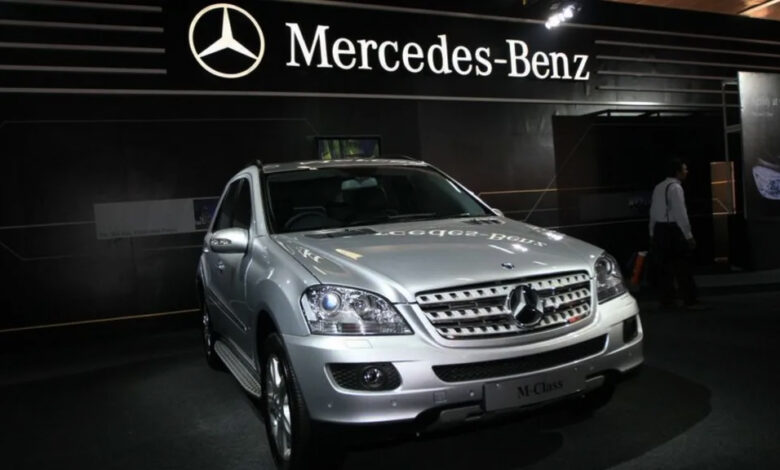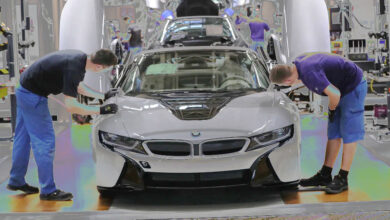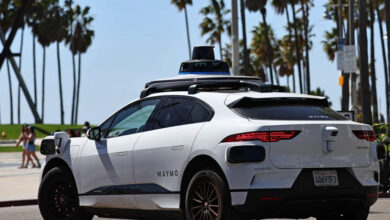Mercedes-Benz Recalls Nearly 1 Million Vehicles Due to Faulty Brake Systems
Mercedes-Benz Recalls Nearly 1 Million Vehicles Due to Faulty Brake Systems

Mercedes-Benz is recalling close to one million vehicles worldwide due to potential defects in their braking systems. The German automaker announced over the weekend that it would contact the owners of these vehicles, stating that “advanced corrosion” could pose a risk to the braking performance.
The recall includes a total of 993,407 vehicles, with approximately 70,000 units located in Germany. This action follows a similar recall conducted by Mercedes-Benz last year, which was triggered by a fault in its emergency call system.
The recall covers vehicles manufactured between 2004 and 2015, specifically the ML and GL series SUVs, along with R-Class luxury minivans. According to Mercedes-Benz, the corrosion could affect the brake booster housing, leading to potential issues with braking functionality. In extremely rare cases, excessive braking force could cause mechanical damage, resulting in an inability to decelerate the vehicle using the service brake, which could increase the chances of a crash or injury.
The recall process has already begun, with the company inspecting the affected cars and replacing any parts that are found to be faulty.
Last year, Mercedes-Benz initiated a recall of over one million vehicles due to an issue with its “eCall” system, a feature designed to automatically alert emergency responders and share the car’s location following an accident. The flaw in the system resulted in the potential for incorrect location data to be sent. Since the problem was software-related, the fix was implemented wirelessly, utilizing the car’s existing mobile data connection.
Since 2018, the eCall system has been mandatory for all cars sold within the European Union.
Mercedes-Benz is recalling nearly one million older vehicles worldwide due to potential issues with their braking systems. Over the weekend, the automaker confirmed it would reach out to owners of affected cars, explaining that “advanced corrosion” could potentially impair their brakes.
The recall impacts 993,407 vehicles globally, with around 70,000 of those in Germany. This comes after a similar recall was initiated by Mercedes last year, which involved a safety concern related to the emergency call system.
The vehicles involved in the latest recall were manufactured between 2004 and 2015 and include models from Mercedes’ ML and GL series of SUVs, as well as the R-Class luxury minivan. Mercedes explained in a statement that corrosion in the joint area of the brake booster housing could potentially affect its function. In rare cases, excessive or forceful braking could lead to mechanical damage, making it impossible for the vehicle to decelerate using the service brake. This could increase the risk of a crash or injury.
Mercedes has already started the recall process and will inspect the affected cars, replacing any faulty parts as needed.
In February of the previous year, the company recalled over one million cars due to a defect in the “eCall” system, which is designed to alert emergency services after an accident and provide the vehicle’s location. The flaw led to the possibility of sending incorrect location information. Since the issue was software-based, the fix was implemented remotely via a wireless download, using the car’s existing mobile data connection.
The eCall system became mandatory in the EU for all vehicles sold since 2018.





